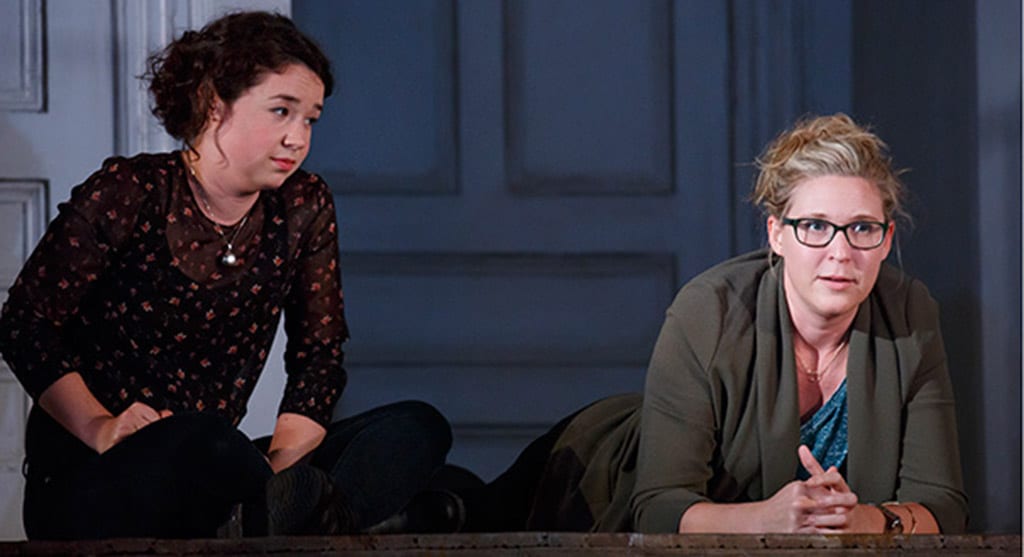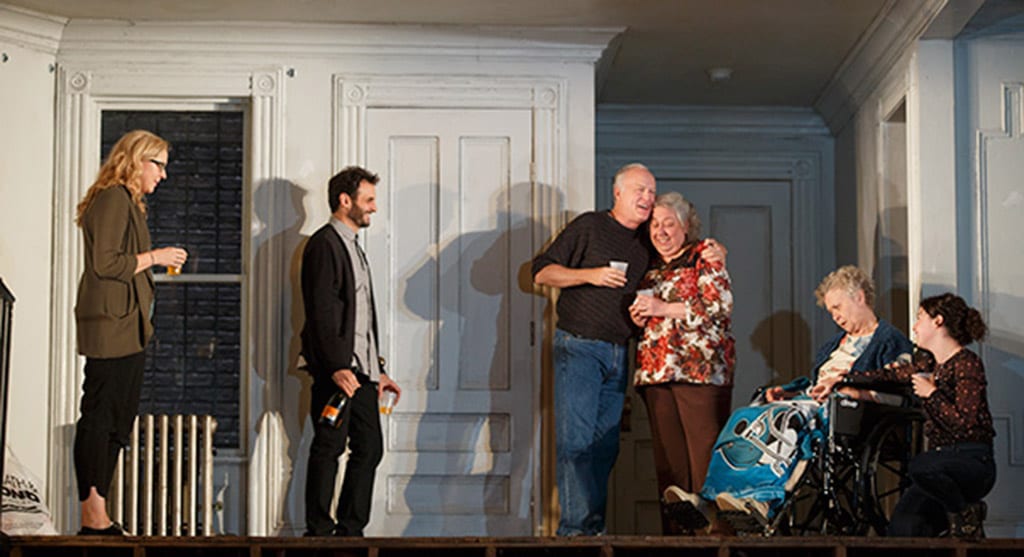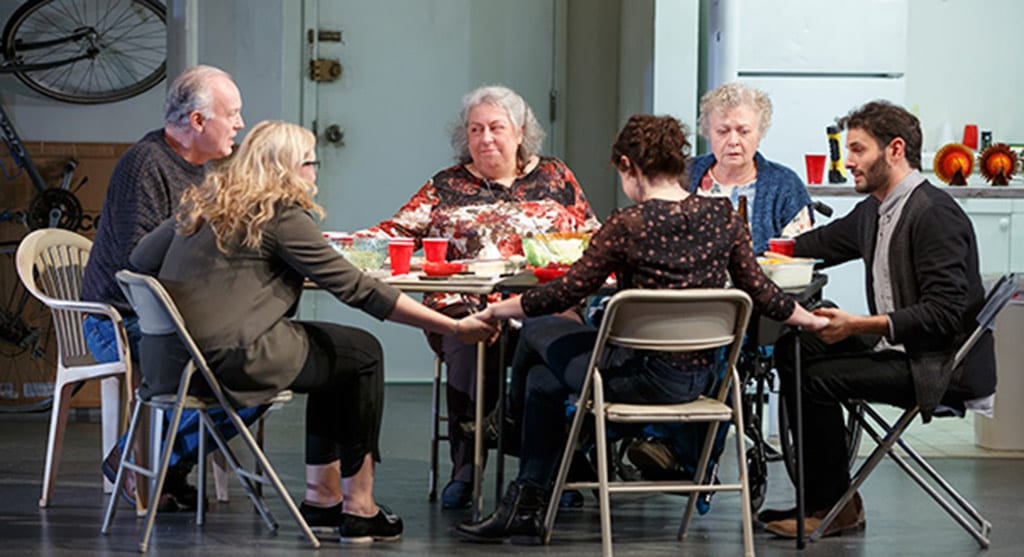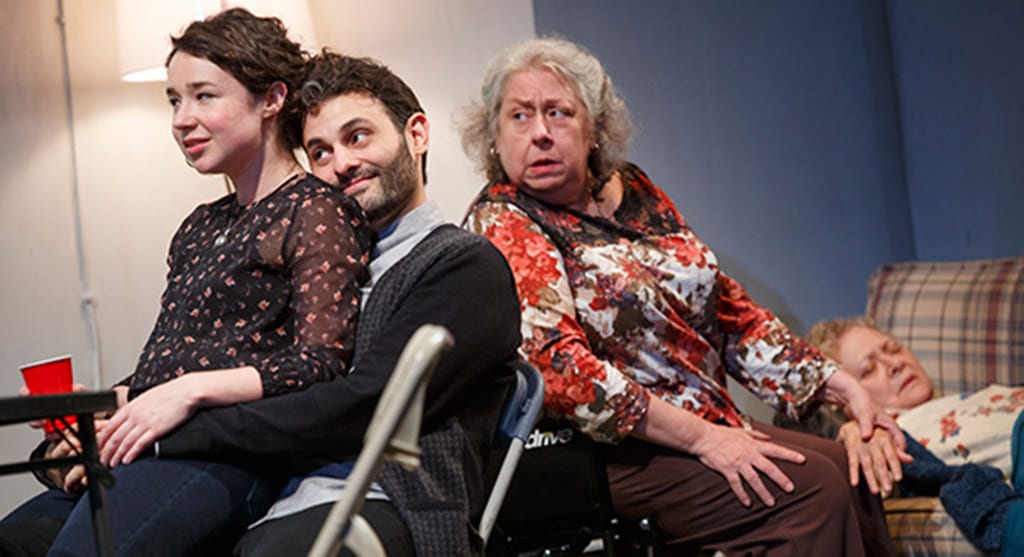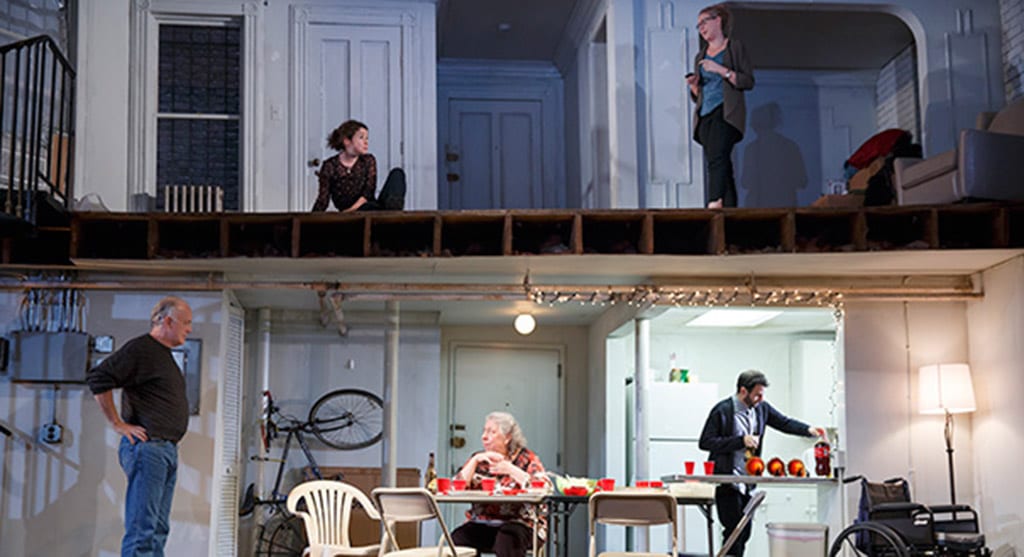This is what love actually looks like, Director Joe Mantello reportedly coached the cast of The Humans, with emphasis on the word “actually”. This work is a virtuosic accomplishment in slice-of-life, fly-on-the-wall naturalism that had my eyes brimming from the sheer human sensitivity of it all. In a cast of stars, there are no “star turns” or “memorable portrayals” paraded as such. With no intermission, no self-consciously punched up laugh lines, and almost no underscored act breaks, we see a painfully and buoyantly real contemporary family, each with a slippery footing on their economic aspirations and relationships, muddling through a Thanksgiving Day. I didn’t know it was considered a comedy until I looked at the Broadway.com listing later. The laughs come as they do in life, from recognition, from sharing, in a silence or during over-talk, sometimes at the expense of another’s feelings.
When I tell you the characters, you will conjure stereotypes and imagine sitcom exchanges. None felt like that. Lauren Klein as “Momo” Fiona Blake, the grandmother of this family with receding Irish Catholic roots, suffering from full-blown dementia and on a normal “bad day” here, is exactly like many of us know family members to be, nothing exaggerated for wit or pathos, nothing hidden, including the palpable burden on her caregivers. Her unexpectedly joining in the family’s recital of a blessing is a brief magical parting of the clouds, and no more. The keenly intelligent, sensitive Reed Birney, now recognizable from The House of Cards, as Erik Blake and the potentially so grounded veteran Jayne Houdyshell, treading water in her life as Deirdre Blake, each with obvious reserves of talent, are magnificently subservient to the quiet ensemble, bearing their sufferings almost invisibly. Similarly, Cassie Beck, as the elder daughter Aimee challenged in love, health, and career and Sarah Steele as Brigid, very similar in this role to the springy, knowing wit she plays so well on The Good Wife, participate in the family dynamic, a dynamic that is not exaggeratedly “dysfunctional”, not saccharinely “loving and supportive”, but awkwardly, truthfully, in neither and yet somehow both of those places. Arian Moayed, as Brigid’s live-in non-spouse Richard, tries to make a good impression on the parents in the way people do, without seeming to be trying to make a good impression. He gives just enough outsider perspective to help us see the Blakes as the unusual family they are, just as every family is unusual.
Scenic Designer David Zinn, Lighting Designer Justin Townsend, and especially Sound Designer Fitz Patton give us a fully believable basement duplex in Chinatown, complete with quirky electrical failings and ambient building sounds. I thought at points that the bowling ball noises from upstairs were a bit over the top. But then, I live on a top floor, and may be unknowingly visiting this plague on my downstairs neighbors. (It’s only nine-pin, for goodness’ sake.)
The anti-dramatic naturalism seemed so Chekhovian, so indicative of the decay of an era of relative economic stasis. As it turns out, playwright Stephen Karam has also written a screenplay of The Seagull and is currently adapting The Cherry Orchard for a fall production at the Roundabout. What’s not here is Chekhov’s ultimate isolation of individuals in their torments. Sure, these characters wound and don’t always respect or understand each other. But they also manage to stand by each other through the maddening hurts and messes. Love exists here, and this is what it actually looks like.

